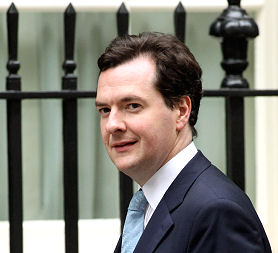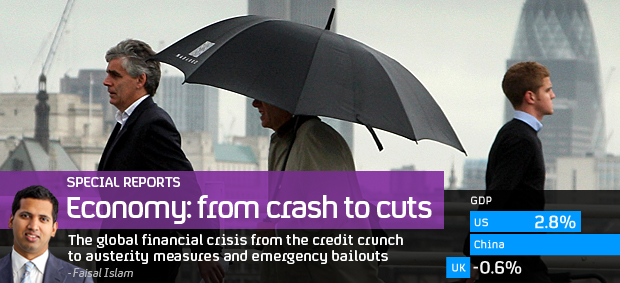UK economy grows by 0.2 per cent
The UK economy has grown by just 0.2 per cent during the last quarter, with the Japanese tsunami, Royal Wedding, and April bank holidays all having an impact.

The latest gross domestic product figures for the second quarter of 2011 reveals that the economy has grown by just 0.2 per cent following an increase of 0.5 per cent in the first quarter of 2011, the Office of National Statistics (ONS) announced.
The April bank holidays, the royal wedding, and the effects of the Japanese tsunami, all had an impact on the growth rate, according to the ONS.
“These estimates are broad brush and illustrative. There can be no certainty as to the impact of the special events and there may be other factors at play,” the ONS said.
Britain was able to sustain modest economic growth for most of 2010 despite coming out of one of the deepest recessions on record.
But a decline in the final quarter last year followed by a mediocre bounce-back to growth in the first three months of 2011, led to fears that the recovery was stagnating.
Analysis: Our Economics Correspondent Faisal Islam on how this isn't really growth at all
Chancellor George Osborne welcomed the figures saying: “The positive news is that the British economy is continuing to grow and is creating jobs.”
“Our economy is stable at this time because this Government has taken the difficult decisions to get to grips with Britain’s debts. Abandoning that now, as some argue we should, would only risk British jobs and growth,” he added.
Earlier, Prime Minister David Cameron insisted that there was no leeway for fiscal stimulus through tax cuts or public spending increases, or monetary stimulus in the form of the Bank of England reducing interest rates or printing money.
Services output increased by 0.5 per cent, compared to 0.9 per cent last quarter.
Construction output increased by 0.5 per cent compared to 3.4 per cent decrease last quarter
Production output decreased 1.4 per cent compared with a decrease of 0.1 per cent last quarter
Agriculture, forestry and fishing decreased 1.3 per cent compared with a 0.1 per cent increase last quarter.
“There’s no country, really, that can afford another fiscal stimulus. They’ve all run out of money,” he said.
“There isn’t some great monetary stimulus you can give when interest rates are as low as they are.”
“The right step for an economy like ours is to get on top of your debt and your deficit and then make it a better place for businesses to grow and expand and employ people,” Mr Cameron added.
Labour has been calling for an economic plan B, insisting that the Government’s policy of using tax rises and spending cuts to eliminate the national deficit by the end of the Parliament risks choking off growth by cutting “too far and too fast”.
